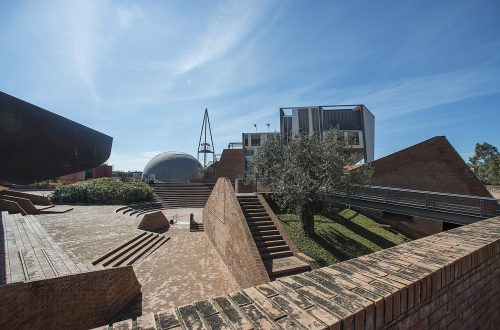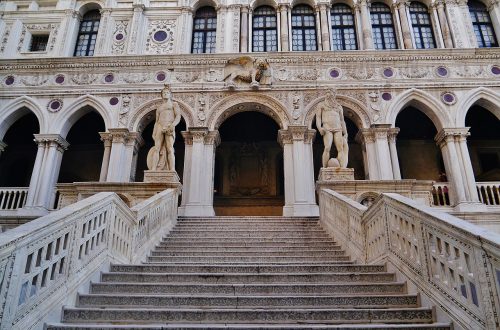
Tuscan Museums for Alzheimer Patients (Toscana, Italy)
Tuscan Museum System for Alzheimer’s (MTA) develops and implements programs dedicated to people living with Alzheimer’s and other forms of dementia. During the pandemic, in collaboration with the museums, they organised interactive activities for people with dementia and their caregivers. The project aimed to raise awareness on issues related to Alzheimer’s and dementia. Their activities helped to make culture accessible to people with Alzheimer’s disease in challenging times of Covid.
Background
For almost ten years, Tuscan museums have been developing and implementing programs dedicated to people living with Alzheimer’s and other forms of dementia. In order to coordinate and enhance their action more efficiently, in 2020 they formed a centralised entity: the Tuscan Museum System for Alzheimer’s (MTA).
The network of Tuscan Museums for Alzheimer’s includes 22 entities that collaborate in order to make culture accessible to people with Alzheimer’s disease. They support lifelong learning and networking among institutions in order to promote social change and community engagement on the issue of dementia.
The network is coordinated by the “Immaginario”, a cultural association in Florence, and collaborates with art museums, exhibition spaces, natural history museums, botanical gardens, archaeological, ethnographic, scientific museums, and libraries.
The organisational structure is formed by:
- The Legal Representative
- The Steering Committee
- The Scientific Technical Committee
The participants of the MTA’s activities are museum operators, social workers of residences for the elderly, and geriatric operators. During the projects’ activities they have been trained with specific skills to play a role of cultural mediation in museums in support of people with Alzheimer’s disease, promoting a culture of inclusion and accessibility for all.
Description
The network of Tuscan Museums for Alzheimer’s has as a common element for all activities: the idea of the museum as a cultural institution, democratic and inclusive, which has the responsibility to ensure access to cultural heritage for all. The network operates in active partnership with various social actors, in order to create new networks and contribute to the continuous development of the inclusive community through culture
The projects implemented during the pandemic period are:
- The conference Resilient Museums, aimed to affirm the proactive role of museums in the creation of a supportive and friendly community for people living with dementia and to reinforce the importance of culture and creativity in the lives of all people, even and especially in a period of pandemic and physical distancing.
- “Distant but Close”: remote museum activities with people with dementia and their caregivers.
- Creative workshops for people with dementia and their caregivers.
- Video Conferences and educational meetings to disseminate activities that took place remotely.
- Arts & Minds@HOME: an in-presence project to promote a welcoming and inclusive approach with the arts. During the pandemic period the activities were transferred to Zoom proposing artistic activities with various materials (easily available at home) and movement activities (Stretching, Chair Yoga, Dance).
The projects were aimed primarily at individuals with Alzheimer’s or dementia with their caregivers. Many activities were also aimed at a broader audience.
Impact
In the year of the pandemic, the Alzheimer’s Museum Network has operated remotely, continuing to develop new ways to stay in touch with project participants, while still offering inspiration and guidance.
Frequent communication on social pages, the website and Youtube channel has allowed the project to grow and involve more and more participants. More than 350 participants online took part in the Resilient Museums Conference. The project attracted a lot of attention, people expressed their appreciation and curiosity about the project on initiative’s social pages. The conference itself received significant media dissemination and support from policy makers in Tuscany who considered this initiative remarkable, inclusive and networked.
The network that has been created over time went beyond the borders of Tuscany and Italy, becoming international. The initiative remained active after the Covid-lockdown as well.
You can learn about their activities by consulting their social sites:
- https://www.youtube.com/channel/UC1579Yi6Szl0-nnz9pXglhA
- https://www.facebook.com/museitoscani.alzheimer/
- https://www.instagram.com/museitoscani.alzheimer/
Interpretation
The project aimed to raise awareness on issues related to Alzheimer’s and dementia. When we talk about dementia, most people think about healthcare and medical support only, and not about creativity or entertainment. The project showed how culture can be an efficient tool for people’s connection and creative development.
References
- Musei Toscani per l’Alzheimer. https://www.museitoscanialzheimer.org/ (accessed November 23, 2021).
- Toscana Notizie, “Presentata la Rete dei Musei toscani per l’Alzheimer”. 24 March 2021. https://www.toscana-notizie.it/-/presentata-la-rete-dei-musei-toscani-per-l-alzheimer (accessed December 2, 2021)
- Art&Mindis@HOME. https://www.museitoscanialzheimer.org/esperienza/artsmindshome-new-york/ (accessed December 6, 2021)
Author
Header photograph
Wikimedia Commons




